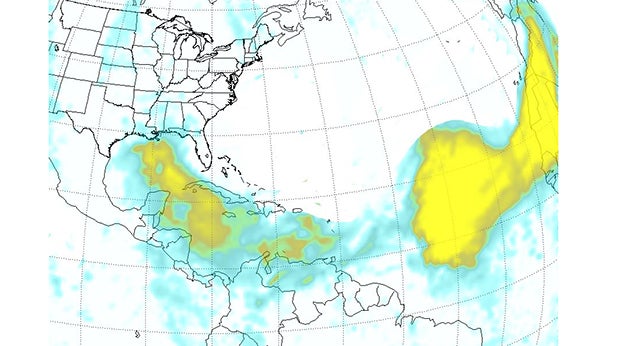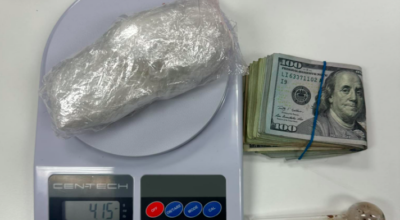Dust storm could alter air quality in state
Published 7:41 am Monday, June 29, 2020

- The path of the dust storm will go over several southern states and could affect air quality in Kentucky this weekend and into next week. (NASA photo)
A statewide air quality warning has been issued by the Kentucky Department for Public health due to a massive dust cloud from the Sahara Desert that is expected to reach parts of the United States within a few days.
Public Health Commissioner Dr. Steven Stack warned Kentuckians on Friday that air quality in the state may be poor this weekend and into next week. An enormous cloud of dry and dusty air that originated over the Sahara Desert will move across the southern United States over the next three to seven days.
“We absolutely need to be cautious this weekend and next week, monitor the air quality index in our area, and if needed, limit our time outside,” said Gov. Andy Beshear. “We’ve already shown that we can come together to fight a global pandemic for months, so I know we can take the steps needed to protect ourselves and our loved ones over one week.”
This type of dust plume, known as the Saharan Air Layer, or SAL, is an annual phenomenon in the late spring, summer and early fall. It can occupy a 2-2.5-mile-thick layer in the atmosphere, according to the National Oceanic and Atmospheric Administration. However, the most recent SAL cloud, first formed on June 14, is unusually large. It is one of the thickest on record and nearly 5,000 miles long. That means it could have a significant negative impact on air quality when it moves over Kentucky.
Poor air quality can aggravate those suffering from respiratory conditions such as asthma and COPD. It can also pose health risks for seniors and young children.
“Fortunately, unlike COVID-19, this is a short-term issue, and the masks most Kentuckians are already wearing will also help protect them from inhaling dust,” Stack said. “But this is still a serious risk for our youngest and oldest residents, as well as those with any respiratory issues. We need to be especially careful this weekend about spending extended time outdoors.”
Dust particles in the air may cause people to experience eye irritation, lung and throat irritation and trouble breathing. To help prevent health-related issues, people practice the following tips:
• Pay attention to local air quality reports and watch for news or health warnings about dust particles in your area. Pay attention to public health messages and take extra safety measures such as avoiding spending time outdoors.
• Continue to wear the protective mask you are using to help prevent the spread of COVID-19. The mask will also help prevent exposure to dust particles if worn correctly.
• Keep windows and doors closed unless it is very hot outside. Run an air conditioner if you have one, but keep the fresh-air intake closed and the filter clean to prevent dust from getting inside. Seek shelter elsewhere if you do not have an air conditioner and it is too warm to stay inside with the windows closed.
• Follow your doctor’s advice about medicines and about your respiratory management plan if you have asthma or another lung disease. Call your doctor if your symptoms worsen.
In the coming days, the Kentucky Department for Public Health says they will continue to work with local and state officials to monitor the Saharan dust plume and if required, issue additional public health advisories and guidance to protect Kentuckians.






